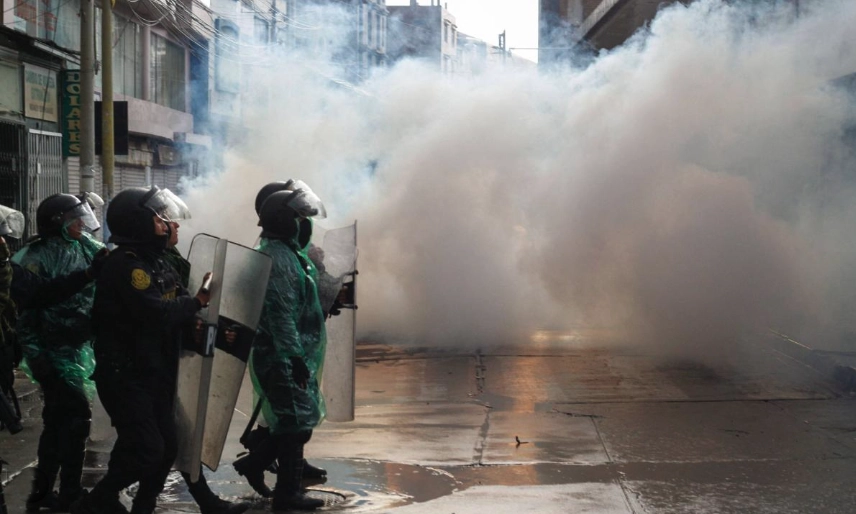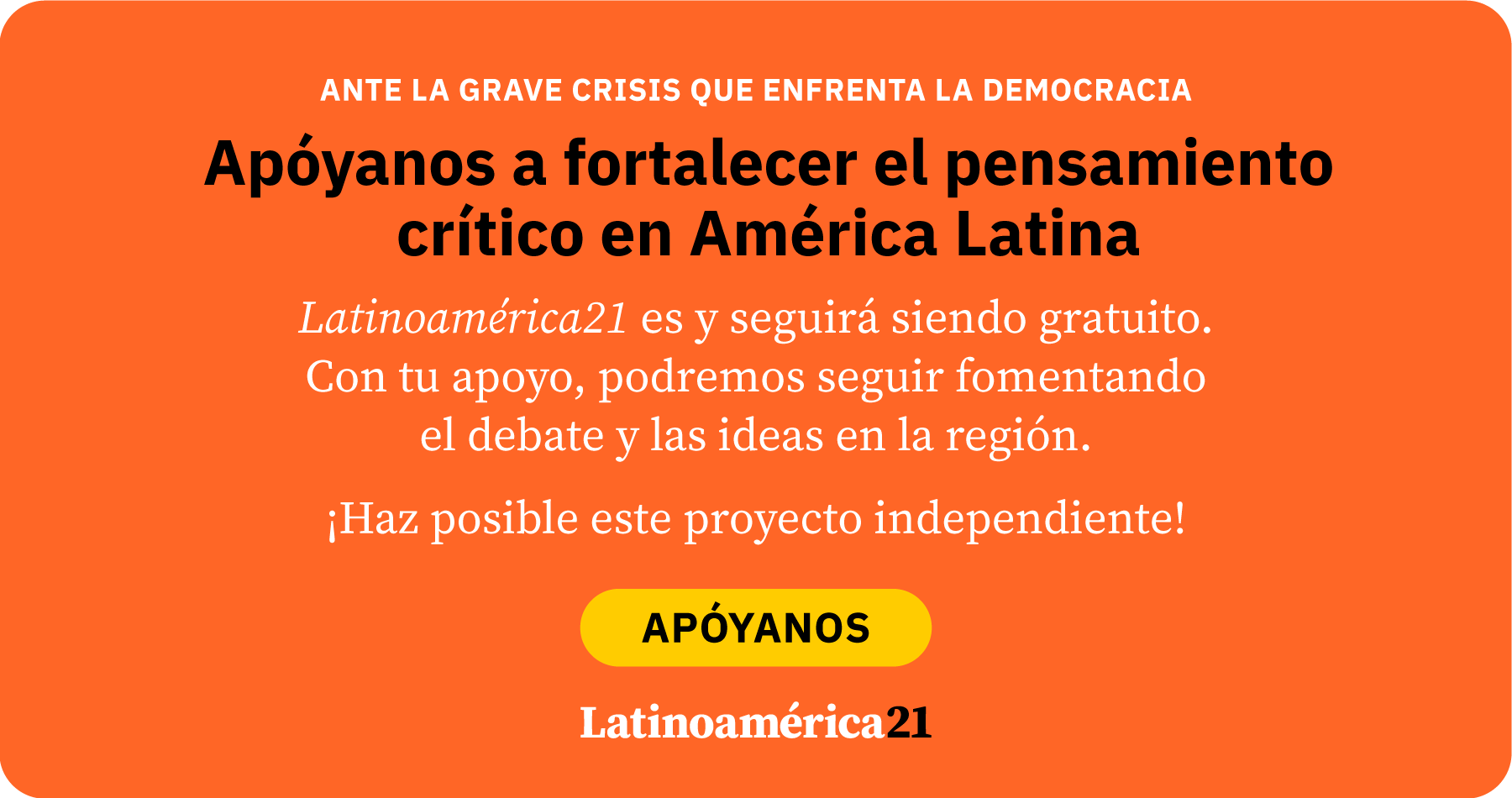Siguiendo la inercia de los últimos años, el mundo se sigue autocratizando según los principales índices que evalúan el estado de la democracia. 2022 fue el sexto año consecutivo de retroceso democrático de acuerdo al reporte del Instituto Internacional para la Democracia y Asistencia Electoral (IDEA). En nuestra región, los retrocesos más pronunciados son los de El Salvador, Guatemala y Nicaragua, mientras que no hay ascensos que celebrar. Por su parte, según la alianza global de organizaciones de la sociedad civil dedicada a fortalecer la acción ciudadana (CIVICUS), cada vez hay más países que restringen y violan las libertades cívicas y casi un tercio de la población mundial vive en países con espacios cívicos cerrados, pasando de un 26% en 2018, a un 30% en 2023. Finalmente, el último estudio de V-Dem señala que el planeta tiene hoy más autocracias cerradas que democracias liberales y que los avances logrados durante los últimos 35 años han sido anulados y como consecuencia el 72% de la población mundial vive actualmente bajo regímenes autocráticos.
En Latinoamérica la situación no es distinta. Tenemos tres regímenes autocráticos consolidados (Cuba, Venezuela y Nicaragua) y varios en franca regresión democrática (El Salvador, Guatemala y Bolivia). A esto se suma una desafección democrática generalizada de sus habitantes. De acuerdo al último relevamiento de Latinobarómetro, sólo el 48% de las personas apoya la democracia en la región, lo que significa una disminución de 15 puntos porcentuales en los últimos 12 años. Por su parte, el porcentaje de encuestados a los que no les importaría tener un gobierno no democrático si éste resolviera los problemas, pasó de un 44% en 2002 a un 54% en 2022.
¿Falla la democracia o la capacidad estatal?
Distintos académicos, entre ellos Adam Przeworski en “La crisis de la democracia” (2022), han advertido sobre la precisión de las encuestas que miden la aceptación de la democracia. Esto debido a la gran dificultad metodológica para su realización. Si los académicos no llegan a un acuerdo sobre el tema, mucho menos se puede esperar que la ciudadanía en general alcance un consenso acerca de sus alcances y límites. Es decir, cuando las personas hablan de democracia, no se refieren a lo mismo. Dependiendo del contexto, se referirán a prosperidad, seguridad, empleo, acceso a la educación y a la salud, elegir libremente a sus representantes o el imperio de la ley.
Esto nos lleva a un segundo problema para medir la percepción de la democracia: su vinculación con la capacidad estatal. Desde un punto de vista procedimental, un régimen democrático es aquel en que se celebran elecciones competitivas, con opciones plurales, libertad de expresión, asociación, manifestación, condiciones que garantizan el principio fundamental de las democracias: que los gobiernos pierdan las elecciones (Przeworski).
Desde esta perspectiva reduccionista, la democracia no tendría por qué garantizar bienestar, equidad, desarrollo económico, empleo o programas sociales, cuestiones que tienen que ver con la capacidad estatal y no con el régimen político. Por eso, encontramos autocracias o teocracias con altos índices de desarrollo económico y democracias con indicadores económicos y sociales muy pobres.
Es por ello que se debe tomar en cuenta que cuando a los habitantes de América Latina se les consulta su percepción sobre la democracia, probablemente respondan valorando a sus gobiernos.
La amenaza autocrática
Precisamente la baja capacidad estatal de los países de América Latina ha producido una frustración ante las expectativas que se tenían de la democracia luego de la tercera ola democratizadora.
Si bien en su famoso discurso, en el marco de la recuperación democrática argentina, Raúl Alfonsín afirmó que “con la democracia se come, se cura y se educa”, los latinoamericanos saben que aunque vivan bajo regímenes democráticos no tienen garantizada la comida, la salud ni la educación. De acuerdo a datos de la CEPAL, uno de cada tres latinoamericanos vive bajo la línea de la pobreza y uno de cada 10 en la indigencia.
El malestar no se limita a los países que no han podido salir de la pobreza. Incluso aquellos que han crecido ininterrumpidamente por décadas y han sacado a gran parte de la población de la pobreza como Chile, han atravesado recientemente crisis institucionales producto de las expectativas frustradas de sus habitantes. Este contexto, es caldo de cultivo para experimentos autocráticos donde tras discursos refundacionales y populistas, emergen líderes que pretenden encarnar al pueblo sufrido y lo defienden del establishment, la casta o el término que esté de moda.
Lo curioso de este proceso de desdemocratización o autocratización es que el puntapié inicial se hace bajo las normas democráticas. Son candidatos que conforman una fuerza política, compiten electoralmente y ganan elecciones. En muchos casos son bastante populares y tienen una comunicación directa con los ciudadanos.
El problema surge una vez que se hacen con el poder, ya que interpretan que el apoyo electoral y su mayoría circunstancial se traduce en un cheque en blanco, un cupón válido para refundar el país e invisibilizar a las minorías. Esta vocación hegemónica se reproduce, según los expertos Ginsburg y Huq, a través de tres prácticas que paulatinamente erosionan la democracia. En primer lugar, la decadencia incremental de las elecciones competitivas, los derechos liberales de expresión/asociación y el imperio de la ley. En segundo lugar, los cambios discretos en las reglas y procedimientos informales que configuran las elecciones, los derechos y la rendición de cuentas. Y por último la pérdida de frenos y contrapesos.
Conforme este proceso avanza, la oposición se va volviendo incapaz de ganar, las instituciones establecidas pierden su capacidad contralora y las manifestaciones van perdiendo fuerza al ser reprimidas. De esta manera, paradójicamente los gobiernos democráticamente electos pueden desmantelar la institucionalidad que les permitió llegar al poder, a veces sin violaciones constitucionales claras.
Mientras en América Latina las expectativas de crecimiento económico sean pobres y la capacidad estatal no pueda satisfacer las demandas ciudadanas básicas, la democracia como sistema político estará en riesgo y los experimentos autocráticos perdurarán.











